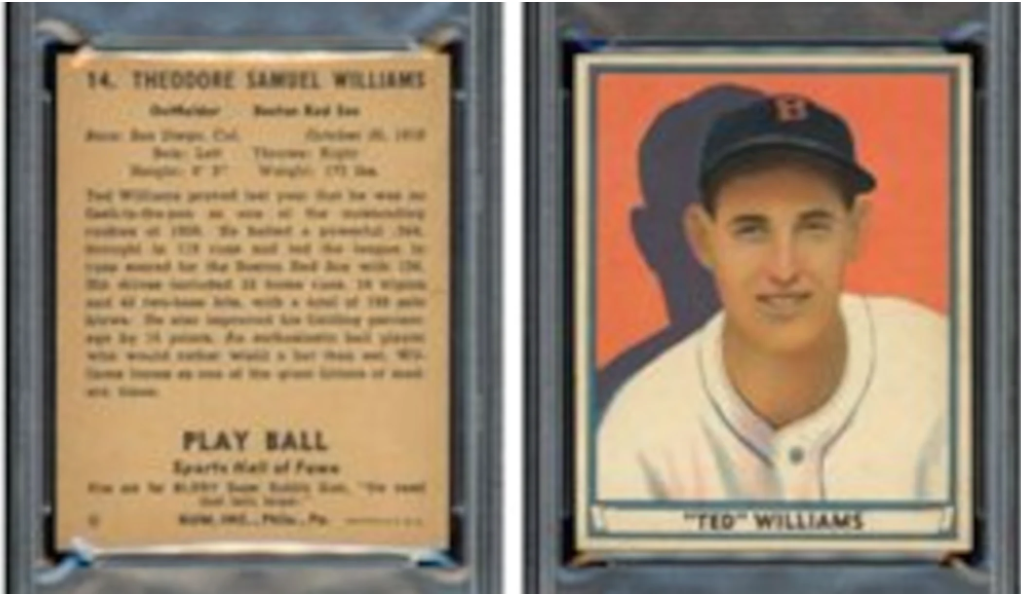In a twist fit for a modern-day sports detective novel, what’s playing out in the courts of Ohio is an almost Shakespearean comedy of missteps, except this tale is steeped in loss, rather than levity. Imagine a package so thrilling that it holds history — not war-torn artifacts or ancient relics, but a time machine of America’s favorite pastime, baseball. The parcel contained 54 carefully curated pieces of sports history, cards featuring titans of the diamond legend. But, like a rookie baserunner ensnared in a pickle, this treasure vanished in a small hotel known more for its continental breakfasts than its foray into high-stakes drama.
That brings us to 2024, at a Best Western in Strongsville, Ohio, where a pre-1909 Walter Johnson card and a pre-war Ted Williams rookie—a treasure trove valued at nearly $90,000 of the total $2 million shipment—disappeared, setting off a chain of events that led Memory Lane Inc., a well-regarded California auction house, to cry foul and ultimately sue. Like a mustachioed baseball villain from old card sets, a hotel employee named Jacob Paxton concocted cunning plans, diverting this cardboard gold mine into the hands of an accomplice, Jason Bowling, whose chillingly calm demeanor helped guide these cards away from their intended owner.
However, the law raced in like a swift-footed shortstop. Thanks to impressive sleuthing, 52 of those precious cards found their way back home, but twinned treasures of Johnson and Williams continue their elusive tango somewhere in the great unknown. While Jacob Paxton finds himself on a lengthy timeout, playing anything but baseball in a state-issued uniform, his co-conspirator twiddles his bat in community-supervised leagues of freedom.
Meanwhile, Best Western International and its local associate find themselves cast in the limelight—not the golden kind that basks victors, but the searing one that unveils flaw. Memory Lane isn’t just hustling for the return of their fortune; they’ve brought the legal heat, claiming gross negligence in employing a double-agent within their walls. For a business soaked in nostalgia and trust, where the integrity of paper and ink can command emperor’s ransoms, the defection of a single employee leads to echoes of reputational damage echoing through the halls of card trading. With chrome-wrapped halls and a behemoth’s portfolio, Best Western is feeling the pressure of what might become precedent-setting litigation.
The courtroom drama is, unfortunately, an all-too-familiar scene that transcends the lobby of any hotel. The National Sports Collectors Convention has similarly felt the sting of stealth and subterfuge. Characters of nefarious repute, prominently lured by the value inscribed on corner creases and hollow wax packs, have absconded with trophies of their own. Near-mythic figures have become victims anew, sacrificial lambs on the altar of greed and larceny, despite ever-growing defenses and measures to stave off such grand larcenies.
Indeed, the whole hobby has transformed itself into something akin to Gilded Age luxury. While the clinking of change has been replaced by eye-popping auction figures, dealers and collectors ship their treasures in armored regalia, beneath watchful electronic eyes, fortifying the once-innocuous exchange of history for currency with as much security as swapping the nuclear launch codes.
Best Western’s ignominious ordeal may soon become a magnetizing narrative of caution, signaling all hotels that high-value packages in shaded cardboard should receive the same detailed scrutiny as a crowned diamond or a Monetesque painting. What Memory Lane desires is not only restitution but also resolution—a new tenet in the shrine of collecting that recognizes these talismans for what they are: fragile, yet immeasurably precious.
While Ohio’s case unfurls across our collective consciousness, one takeaway rises above like a towering flyball: Memories are security-hardened in vaults, deprecated only by time or theft, so why should their tangible proxies be any different? Collectors shall tussle on, ever more defiant, shielding their goods as Dylan serenades from timeless turntables—forever young amid fields of endless green and vintage past.

